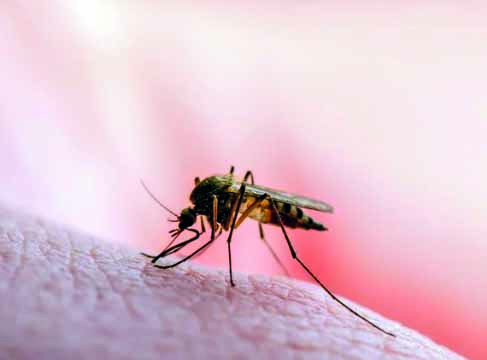MCD intensifies its anti-mosquito measures amid surge in Dengue cases

New Delhi: The Municipal Corporation of Delhi (MCD) has ramped up its efforts to control the spread of vector-borne diseases, including dengue, malaria, and chikungunya, across the national capital. In light of rising health concerns, MCD’s Public Health Department shared a multi-pronged strategy aimed at curbing mosquito-borne illnesses.
A key part of the initiative includes house-to-house inspections, with over 2.59 crore households visited so far. During these inspections, 1,56,932 mosquito-breeding sites were identified and destroyed on the spot. The health officials are also educating homeowners about hygiene and mosquito prevention measures to stop further breeding. To directly tackle adult mosquitoes, more than 4.20 lakh homes across the city have been sprayed and fogged with insecticides. The MCD’s strategy also includes regular insecticide spraying in vulnerable areas like drains, water bodies, and surface water collections, using manual and motorised sprayers.
Additionally, biological control measures are being deployed, with larvivores fishes introduced at 213 clean water locations. These fish consume mosquito larvae, helping to control the spread in areas prone to stagnant water. The corporation has also carried out 23 special drives targeting high-risk zones, including police stations, construction sites, parks, hospitals, schools, and government offices, to eliminate breeding grounds. Special fogging operations have been carried out at high-density public areas such as Kavad camps, Krishna Janmashtami temples, and historical sites like Lal Quila (IDC-2024). To reach difficult areas, such as low-lying regions along railway tracks, power spray tankers mounted on railway wagons have been used for fogging operations.
Moreover, a total of 28 Inter-Sectoral Coordination Committee meetings have been held, involving key stakeholders such as the Delhi Development Authority (DDA), Delhi Jal Board (DJB), Delhi Police, Public Works Department (PWD), and several other civic and governmental agencies. To improve community involvement in curbing the spread of diseases, the MCD has trained nodal teachers in all schools to prevent mosquito breeding on school premises. These teachers play a crucial role in spreading awareness among students and staff, ensuring a healthier environment for children.
As the mosquito breeding season intensifies in the coming months, the MCD plans to scale up its fogging and focal spray operations, particularly around public gatherings and religious festivals. From September to October, outdoor fogging will be intensified based on mosquito density and the evolving disease situation. The MCD also intends to strengthen anti-larval measures on public lands, especially in areas identified as repeat offenders. Legal notices, fines, and police complaints will be issued against defaulters who allow mosquito breeding on their premises.
The MCD has already issued 97,397 legal notices, 32,384 challans, and imposed 7,929 administrative charges on individuals found to be in violation of the Malaria and other Vector-Borne Diseases Bye-Laws under the Delhi Municipal Corporation Act. In cases of repeated violations, police complaints will be lodged to ensure compliance.



